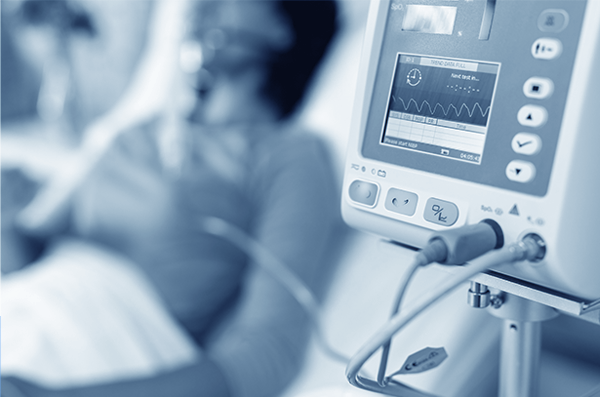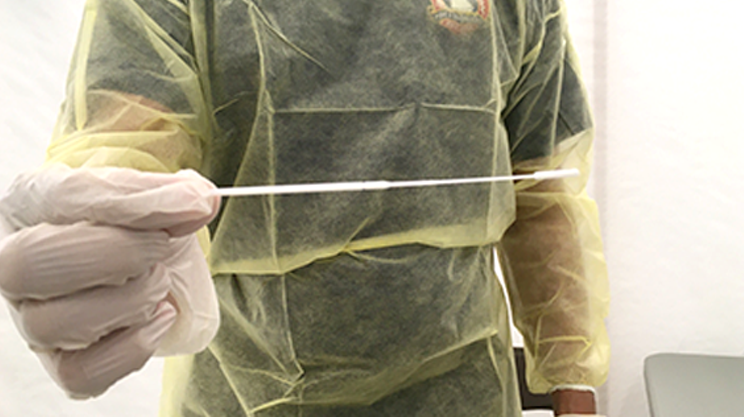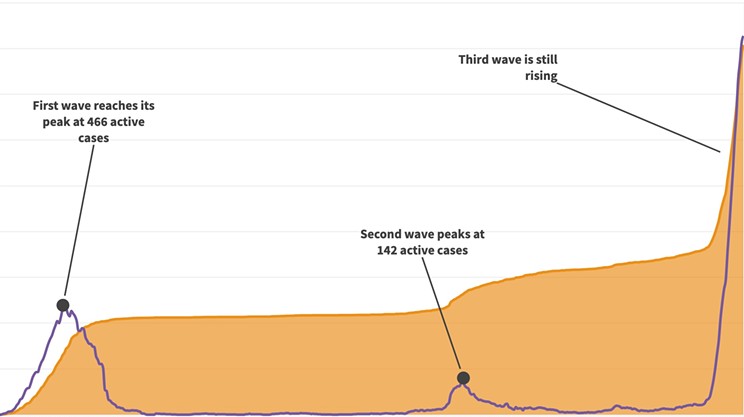Patient transfers between Nova Scotia hospitals were triggered Wednesday, as the number of people requiring intensive care for COVID-19 rose to 20 across the province, and hospitalizations reached a provincial pandemic high of 75 people.
During this afternoon’s COVID briefing, Nova Scotia’s chief medical officer of health, Robert Strang, described how the third wave’s scale had hit yet another record-setting moment: ICU patients had begun being moved from Central to other zones due to the latest influx of cases. The transfers are used to free up ICU beds in Central for new patients; high numbers of daily COVID infections continue to be the norm in the Halifax and Dartmouth community health networks.
“All aspects of our healthcare systems are being impacted by this outbreak,” Strang said, noting that “many Nova Scotians are sick and the number of hospitalizations is higher than we like.”
Shortly after the briefing concluded, a press release issued by Nova Scotia Health outlined that fewer than five intensive care patients (both COVID-19 and non-COVID) were transferred to ICUs in the Northern and Western zones. Of the 20 patients with COVID who are currently in the ICU, the release said 15 are in the Central zone.
“While a spike in hospital admissions for COVID-19 was expected this week based on recent positive test numbers, so far the proportion of those patients requiring intensive care has been higher than anticipated,” the press release stated. “These patients are most often otherwise healthy people, not the frail, older patients we saw admitted last spring.”
The news of ICU transfers came on a day when Nova Scotia recorded 149 new daily COVID cases, with a seven-day rolling average of 164 new cases. Most of these cases, premier Iain Rankin noted, are concentrated in the Central zone. Hospitals usually anticipate around 10 percent of positive COVID cases will require hospitalization, with about three percent needing intensive care.
Just last week, in an interview with the medical director of critical care for Nova Scotia Health, the Canadian Press reported that the city’s system has a capacity for 28 critical care beds, which could be extended to 44. Across the province, there are a total of 93 intensive care beds, but there is the ability to—in an emergency—push that to 133.
“We are not out of the woods yet, and this could get worse in the days ahead yet,” Strang said Wednesday, cautioning there is typically a lag between cases being reported and severe illness onset. “Hospitalizations may still increase even while new cases are declining.”















